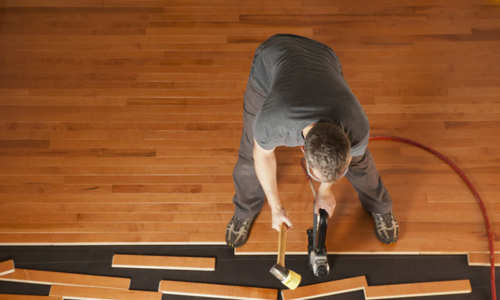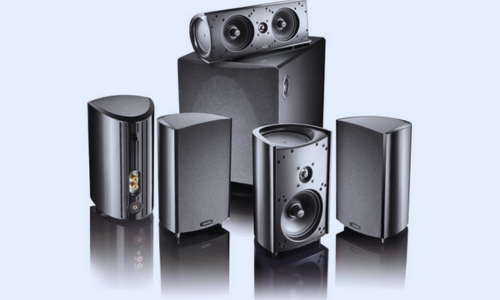Engineered hardwood has become a popular choice for homeowners and designers looking for the elegance of wood flooring combined with the benefits of modern construction. Unlike traditional solid hardwood, engineered hardwood is designed to provide enhanced stability, durability, and versatility, making it suitable for various environments and installations.
What is Engineered Hardwood?
The top layer, known as the veneer, is made of real hardwood, which gives the floor its authentic wood appearance. The core layers beneath the veneer are typically made from plywood or high-density fibreboard (HDF), which adds strength and stability to the planks. This multi-layer construction helps engineered hardwood resist warping and shifting, making it an excellent choice for areas with fluctuating temperatures and humidity levels.
Advantages of Engineered Hardwood
1. Durability:
Engineered hardwood’s layered construction provides enhanced durability. It is more resistant to warping, expanding, or contracting due to changes in moisture and temperature, unlike solid hardwood. This makes it suitable for installation in areas like basements, kitchens, and bathrooms where humidity levels might vary.
2. Aesthetic Versatility:
The top layer of engineered hardwood is real wood, available in a variety of species, finishes, and plank sizes. From classic oak and maple to exotic woods like mahogany and teak, engineered hardwood offers a wide range of styles to suit different interior designs. Additionally, engineered planks come in various textures and finishes, including hand-scraped, wire-brushed, and distressed, allowing for a personalized look.
3. Easy Installation:
Engineered hardwood can be installed in several ways: as a floating floor, glued down, or nailed down. This versatility makes it suitable for a range of subfloor types, including concrete, plywood, or even existing flooring. Some engineered hardwood products also come with a click-lock system, making DIY installation a more feasible option.
4. Cost-Effectiveness:
Compared to solid hardwood, engineered hardwood is often more affordable, especially for certain exotic wood species. This is due to its construction, which uses less of the expensive hardwood material. Additionally, the durability of engineered hardwood can result in lower long-term maintenance costs.
5. Eco-Friendly Option:
Engineered hardwood uses less natural hardwood in its construction, as the top veneer layer is thinner than a solid plank. This makes it a more environmentally friendly option, particularly when sourced from sustainably managed forests.
Disadvantages of Engineered Hardwood
1. Limited Refinishing:
While engineered hardwood can be refinished, it has limitations. The number of times it can be sanded and refinished depends on the thickness of the top veneer layer. Typically, thinner veneers allow for only one or two refinishing cycles, unlike solid hardwood which can be refinished multiple times over its lifespan.
2. Potential for Surface Wear:
Although engineered hardwood is durable, its surface can still suffer from scratches, dents, and general wear over time, depending on the quality of the finish. However, choosing high-quality engineered hardwood with a durable finish can mitigate this issue.
Engineered Hardwood vs. Other Flooring Options
- Engineered Hardwood vs. Solid Hardwood: While solid hardwood offers a longer lifespan and more refinishing options, engineered hardwood is more versatile and stable, especially in areas prone to moisture. Engineered hardwood also tends to be easier and faster to install.
- Engineered Hardwood vs. Laminate: Laminate flooring is often more affordable than engineered hardwood but lacks the authentic wood look and feel. Engineered hardwood offers a real hardwood veneer, giving it a more genuine appearance. However, laminate may provide better water resistance.
- Engineered Hardwood vs. Vinyl Plank Flooring: Vinyl plank flooring is more water-resistant and budget-friendly, but engineered hardwood offers a natural look and adds more value to a home due to its genuine wood veneer.
Installation of Engineered Hardwood
Engineered hardwood’s installation methods are versatile and can be adapted to various subfloor types:
- Floating Floor: This method involves clicking and locking the planks together without gluing or nailing them to the subfloor, ideal for DIY installations.
- Glue-Down: Engineered planks are adhered to the subfloor using special flooring adhesive. This method works well for concrete or wood subfloors.
- Nail-Down: Suitable for wooden subfloors, this method uses nails to secure the planks, providing a more traditional hardwood flooring feel.
Maintenance and Care of Engineered Hardwood
- Cleaning: Regularly sweep or vacuum engineered hardwood floors to remove dirt and debris. Damp mop occasionally using a cleaner designed for hardwood floors, avoiding excess water to prevent potential damage.
- Protection: Use rugs, mats, and felt pads on furniture legs to protect the floor from scratches and dents. Keep indoor humidity levels consistent to prevent the planks from expanding or contracting.
Cost of Engineered Hardwood Flooring
The cost of engineered hardwood varies depending on factors such as wood species, plank thickness, finish quality, and installation method. While it is generally more affordable than solid hardwood, premium options and exotic wood species can drive up the price.
Popular Wood Species for Engineered Hardwood
Engineered hardwood is available in many wood species, each offering unique characteristics:
- Oak: Known for its durability and distinct grain patterns.
- Maple: Offers a smooth texture and a range of light to medium color tones.
- Hickory: Highly durable with unique grain patterns, perfect for high-traffic areas.
- Walnut: Deep, rich color tones with a sophisticated appearance.
Conclusion
Engineered hardwood is an excellent flooring option that combines the natural beauty of wood with modern engineering for enhanced durability and versatility. Its various styles, ease of installation, and resistance to environmental changes make it a popular choice for homeowners and businesses alike. Whether you’re looking to update your living room, bedroom, or even a basement, engineered hardwood provides a timeless and durable solution that can complement any space.



